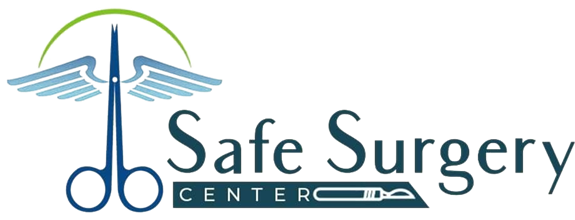
Hernia
What is Hernia?
A hernia is a protrusion of an organ or tissue through an abnormal opening in the body. Most hernias occur when a piece of intestine slips through a weakness in the abdominal wall, creating a bulge you can see and feel. Some hernias are present at birth. Others develop slowly over a period of months or years. Hernias also can come on quite suddenly.
Types of Hernia:
Inguinal/femoral Hernia – In the Groin Region
Umbilical/ Para-umbilical Hernia – Around the belly button.
Incisional Hernia – Around the site of an earlier surgery.
Epigastric Hernia – In the Epigastric region
What does a hernia feel like?
A hernia can be both seen and felt. You may notice it as a lump in your abdomen or groin that may or may not disappear when you lie down. You also may be aware of a dull aching sensation that becomes more pronounced when you are active.
Does Hernia Always Hurt?
Most of the hernias do not hurt.
How Is Hernia Treated?
Hernias usually need to be surgically repaired to prevent intestinal damage and further complications.
Surgical procedures are done in one of the two fashions:-Your surgeon will determine the best method of repair for individual situation:-
The open approach is done from the outside through a 3 to 4 inch long incision in the groin. The surgeon may choose to use a small piece of surgical mesh to repair the defect.
The laparoscopic hernia repair. In this approach, a laparoscope (a tiny telescope) connected to a special camera is inserted through a trocar, a small hollow tube, allowing the surgeon to view the hernia and surrounding tissue on a video screen. Other trocars are inserted which allow your surgeon to work “inside.” Three or four quarter inch incisions are usually necessary. The hernia is repaired from behind the abdominal wall. A small piece of surgical mesh is placed over the hernia defect and held in place with small surgical staples. This operation is usually performed with general anesthesia or occasionally using regional or spinal anesthesia
Bard 3D Max Mesh Bard Fixation Devices Sepramesh IP
Will My Hernia Go Away?
An untreated hernia will not get better on its own, although it may not get worse for months or even years. A hernia that can be easily pushed back or flattened (reducible hernia) is generally not an immediate danger to your health, although it can be painful. A non-reducible hernia, however, can become life-threatening if part of the intestine gets trapped, or strangulated in the opening. This is also called an incarcerated hernia and in an emergency situation may require immediate surgery.
Is It Risky For People With Other Medical Problems Like Diabetes, Hypertension & Morbid Obesity?
Not at all; On the contrary, absence of major trauma to the body causes minimal disturbance of normal physiology. Hence, there is no risk of aggravation of other conditions.
Facts on Hernia
If you suspect you have a hernia, but have avoided treatment because you are worried about the discomfort and recuperation time of surgery, talk with your doctor. You may discover there are now options available that may offer you less post operative discomfort and shorter recuperation than you might expect. A hernia can not only be painful, but also potentially life threatening. Therefore, it is important to see your doctor if you have signs of a hernia. While treatment is not always immediately necessary, a careful evaluation by your doctor will help safeguard your health and comfort. Your doctor can discuss with the various treatment options and the associated risks and benefits of each.
Dr.KARAN R RAWAT IS A HERNIA SPECIALIST AND ADVANCED HERNIA SURGEON IN SAFE SURGERY CENTER AGRA HE HAS PERFORMED MORE THAN 5000 HERNIA SURGERIES AND IS A RENOWNED EXPERT .



